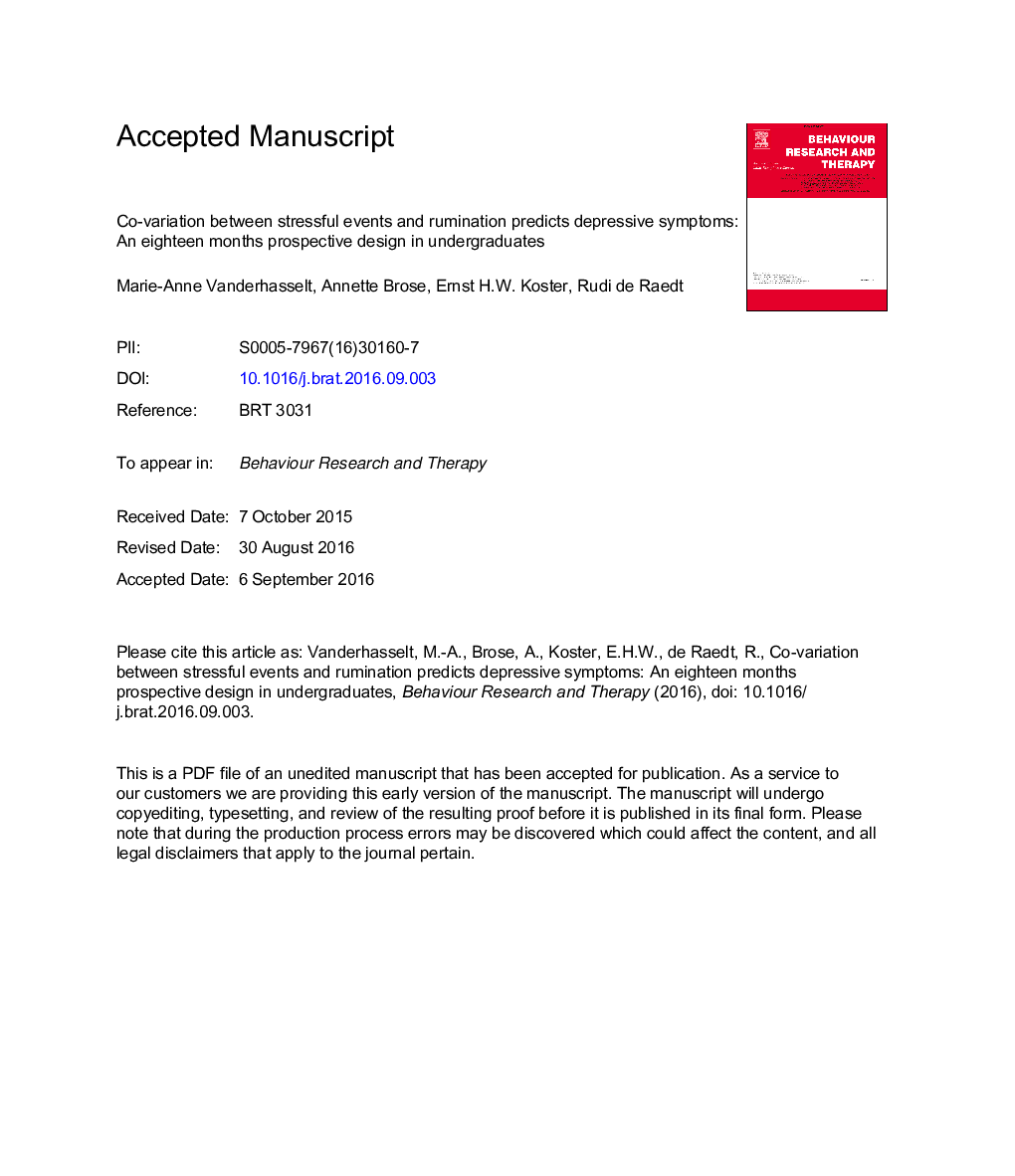| Article ID | Journal | Published Year | Pages | File Type |
|---|---|---|---|---|
| 7262000 | Behaviour Research and Therapy | 2016 | 24 Pages |
Abstract
Rumination is a maladaptive form of emotion regulation and seems to be the cognitive mechanism linking stress to depressive symptoms. However, it remains to be investigated whether individuals' variation in rumination in relation to the occurrence of stressful events (e.g., phasic co-variation between stressful events and rumination) prospectively predict the experience of depressive symptoms in lengthy follow-up moments. In this eighteen months prospective design, a large unselected sample of undergraduates was tested before, during, and after a period with prominent naturally occurring stressful events. The multilevel results show that the co-variation of stressful events and ruminative thinking predicts the experience of depressive symptoms at 3 and 15 months follow up moments, also when statistically controlling for baseline depressive symptoms. Moreover, the data demonstrate that the phasic elevations of rumination in relation to the occurrence of stressful events are more predictive of depressive symptoms compared with the stable aspects of rumination measured at one occasion. At the clinical level, the current findings seem to suggest a process-oriented intervention to target the phasic ruminative cognitions where individuals need to learn to control rumination exactly at moments of stress.
Related Topics
Health Sciences
Medicine and Dentistry
Psychiatry and Mental Health
Authors
Marie-Anne Vanderhasselt, Annette Brose, Ernst H.W. Koster, Rudi De Raedt,
